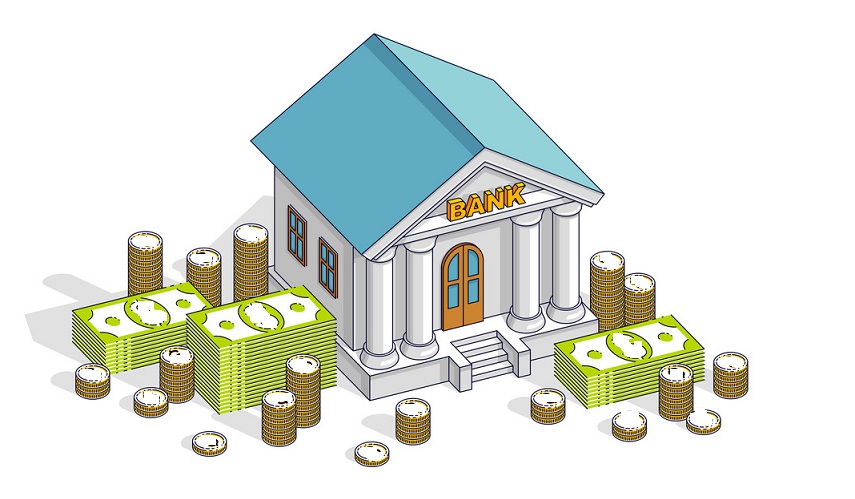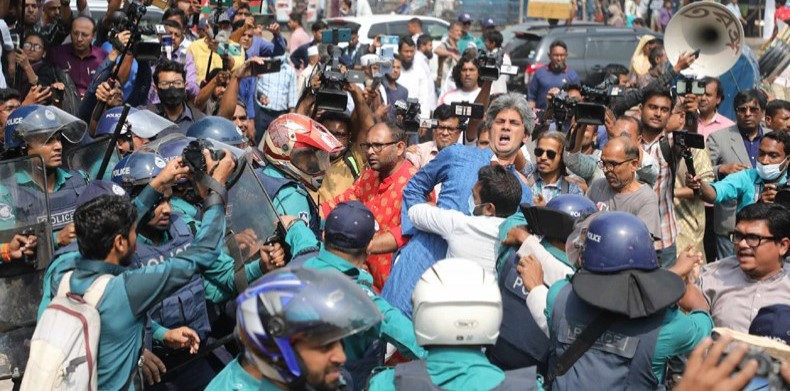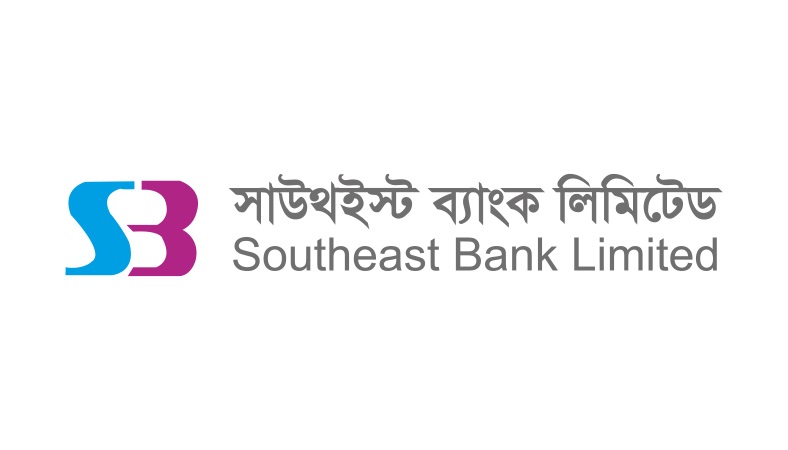The banking sector will no longer be the goose that laid the golden eggs when it comes to supplying money to the economy as the government wants to kill it by imposing the lending rate cap, said bankers.
They made the remark on Saturday while speaking at an online discussion with The Business Standard over the current state of the banking sector.
Dr Zahid Hussain, former lead economist of the World Bank's Dhaka office, moderated the discussion.
"Banks have been turned into charities. They cannot charge fees and prices are also fixed for loans," said Selim RF Hussain, managing director of Brac Bank.
As a result, banks will shy away from lending, ultimately hurting the national economy and domestic businesses. Small and medium enterprises (SMEs) and retail businesses will die off in less than a year, he said.
"The banking sector is a goose that lays golden eggs. Attempts are currently going on to kill the goose. So, the banks will no longer lay golden eggs in the future," he explained with the help of the famous fable from Aesop's tales.
In the upcoming monetary policy, the Bangladesh Bank should give some flexibility in the lending rate to save retail and SME businesses, Selim further said.
Back in the 2016-17 fiscal year, lending rate of private banks came down to 7-8 percent, said Rahel Ahmed, managing director of Prime Bank.
Nobody needed to "instruct" banks to bring down the lending rate at the time, he said. Before imposing the interest rate cap, banks were lending at 11 percent to 12 percent.
"So, borrowers get a two percentage point reduction in lending rate, which does not have much impact on their businesses. On the contrary, through this interest rate cap, we are sucking out money from the banking sector," he said.
Rahel added that depositors are contributing to 87 percent of the money in banks, but "we have forgotten about them."
"We are only trying to serve borrowers by reducing the interest rate."
He further said the Bangladesh Bank has been giving regulatory forbearance by suspending installments, which is ultimately helping bad borrowers. "Banks will be in serious trouble when the forbearance ends," he stated.
Since the interest rate is fixed, announcing the monetary policy is just a formality now, said Faruq Mainuddin Ahmed, managing director of Trust Bank.
It is true that if retail businesses are destroyed, large businesses will also not be viable, he said.
"But I'll not prefer to lend at a 9 percent interest rate to retail and SME segments; rather, I will prefer to invest in government treasuries," he said.
At present, consumer financing has almost stopped, he added.
"We are emphasising only the garment exports, but giving importance to the domestic market will boost our GDP," Faruq opined. He said it was the market forces that brought down lending rates to single digits in 2016 and 2017. So, this should also have been market-driven.
The economy of Bangladesh grew in the free market economy regime and private commercial banks mostly contributed to industrialisation. Most large industrial loans came from private banks, which were supposed to come from the Bangladesh Shilpa Bank.
"If free interest rate was not a problem before, why is it suddenly such a big problem now?" he questioned.
It should be found out whether the entire business community demanded a lending rate cap or only some vested groups, he suggested.
In his observations, economist Dr Zahid Hussain said, "Deeper problems like governance and high default loans have to be addressed. Otherwise life support will not work in keeping the banking sector operational."
As an immediate action, Bangladesh Bank can give some indications in the new monetary policy on how much flexibility it can bring to the interest rate cap, he said. During this pandemic, both demand and supply have been disrupted. Monetary policy can be expansionary, but how effective that can be will depend on where expansion is going.
If SMEs and cottage industries remain credit-starved due to the interest rate cap, then that expansionary monetary policy will not boost production, he said.
"The interest rate cap will give short term benefits to corporate and commercial clients during this pandemic, but in the medium term, it will certainly shrink private sector credit growth," said Selim RF Hussain.
He said private sector credit growth has already started sliding, and it will be slower in the coming months because there is no risk premium and prices are lower than the recovery costs.
The SME and retail portfolio of Brac Bank is around Tk16,000 crore – now a complete loss-maker.
It is hard to believe that the 16.7 percent private sector credit growth target set in the new budget can be achieved, Selim said.
He added that people must have money to sp
















